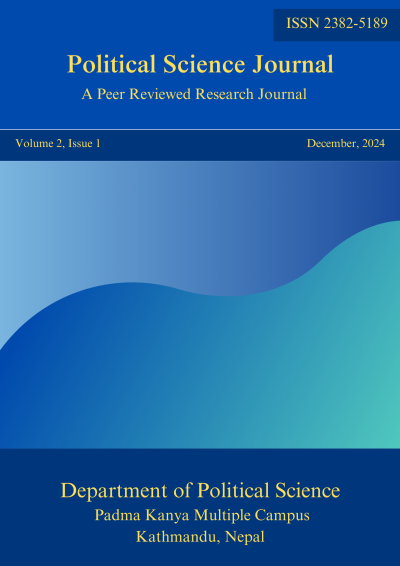An Analysis of the Impacts of Maoist Conflict in Nepal
DOI:
https://doi.org/10.3126/psj.v2i1.75111Keywords:
Conflict, Permanent peace, Social exclusion, Proportional representation, InclusivenessAbstract
Conflict is a burning issue in the contemporary world. It creates major threat to world peace. The issues which are closely related to the social and economic condition of any country such as caste, ethnicity, gender, class, religion etc. are the precursor of the conflict. Conflict is the main cause of violence, fight, battle, war or even insurgencies and the terrorism. Human being and the society are greatly affected by conflict and they live under mental tension and terror. The development, peace and prosperity depends the peaceful condition of the society. An analytical and descriptive methodology is used in this study with reference to multicultural and liberal theory which is based on secondary sources of data. For the research, the information is gathered from books in libraries, the internet, and published materials on related topics that are gathered from newspapers, books, magazines, and archives on inclusion. In context of Nepal there are different variables of conflict overlapping on each other such as castes, religion, ethnicity, gender, language, region etc. As Nepal is declared Federal Republic by Interim Constitution of Nepal 2063 and it is in the process of restructuring the states. However, some hurdles on the path of development. This paper deals with the very important issues which are to be addressed for permanent peace. There are a lot of positive changes seen after Maoist conflict that brought remarkable impacts in the life of Nepalese people.




